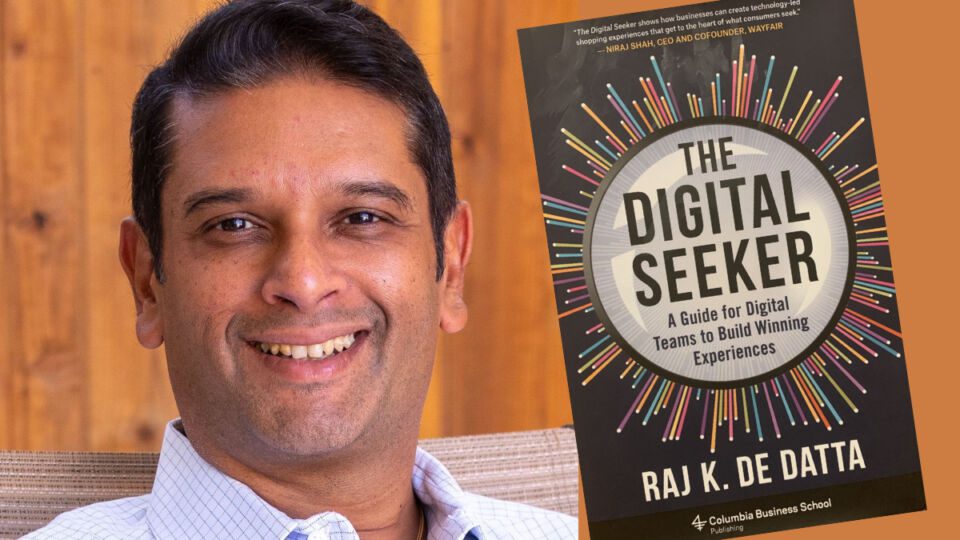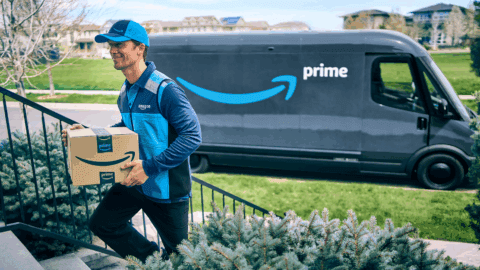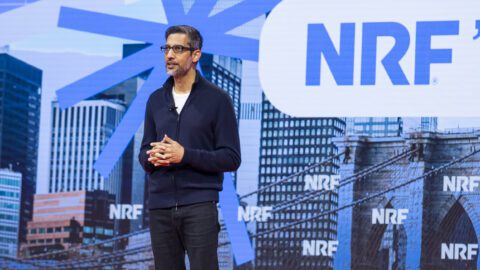Author Raj De Datta believes that the companies that are winning today in the crowded terrain of cyberspace are those focusing on the solutions they provide, rather than the products they offer. De Datta calls this “seeker-centricity” — creating digital experiences centered on what consumers are seeking, not what a company is selling. The result is not only more satisfied customers, but more loyal ones.
De Datta, who describes himself as a “classical Silicon Valley entrepreneur,” currently serves as CEO and Co-founder of his third tech startup, the commerce experience platform Bloomreach. The company powers “almost a quarter of ecommerce in the U.S.,” according to De Datta, for companies including Williams-Sonoma, Neiman Marcus, Staples, Puma, Albertsons and hundreds more.
In his new book — fittingly titled The Digital Seeker — De Datta looks at “what causes the winners to win in digital, and what causes the losers to lose.” He shared some of his findings with Retail TouchPoints.
Retail TouchPoints (RTP): So what exactly is a “digital seeker”?
Raj De Datta: For 10 or 15 years we’ve been hearing about “customer-centricity.” Amazon has trained all of us — if we’re going to build a deck, we’ll figure out the 40 things we need to buy to build a deck, and then go to Amazon and search for plywood or bolts or hammers or whatever else we might need. We used to just call somebody and say, “Hey, can you help me with this?” Now we do a lot of the work ourselves, doing all the research, and then we go to a bunch of websites and search for those things and buy them and figure it out on our own, which means our digital to-do lists are just massive.
The winners [in ecommerce today] don’t stop at what the customer is looking for. They go to the underlying motivations behind the purchase. So instead of building a website to sell plywood, you build a website to help somebody build a deck. Instead of building an ecommerce experience that sells clothing, you do what Stitch Fix does and build an ecommerce experience to help somebody express their style. It’s all about looking at what the user is seeking, really seeking, and building winning experiences for that, instead of what the customer is purchasing.
There’s story after story in every vertical of how the winners do this so effectively. We work with an eyeglass retailer called GrandVision. They have optometrists in their stores, and what they’ve done is taken the entire experience and put it online, including the optometrists, and built a digital eyeglass selection experience. Warby Parker has done something similar. While [other retailers] might say, “Here’s the best eyeglasses, go figure out for yourself which one you want and we’ll sell it to you in a frictionless way,” that’s not enough. [The winners] are putting that entire experience online.
RTP: You mention in the introduction of your book that the internet was supposed to make life easier, but instead it’s made life harder in many ways. How can retailers help solve this problem rather than be a part of it?
De Datta: Retailers, brands and manufacturers own more than 50% of this problem because many have just said, “We’ll follow the Amazon playbook.” The Amazon playbook is to make it super easy for somebody to find anything, but it’s going to be the consumer’s problem to figure out what they need in the first place. And that’s fine. Amazon solves some consumer needs, which are convenience, price and selection, but it still places an enormous burden on the consumer to figure out what they need in the first place.
[Many companies] still think about the internet as a distribution channel. If you think about it that way, then you’re not trying to solve the deeper problem, you’re just trying to take the stuff that you already have and sell more of it online. They’re not changing anything about what they’re delivering to the consumer, they’re giving them the same product online as they do in stores. That’s not actually solving the underlying needs of the consumer, it’s just giving them more to-dos and as a result consumers become less loyal — they just click away to whatever is cheaper.
Think about the path that you used to go through in a pre-Uber world: “I need to get from point A to point B. I’m going to look at maps, try to figure out how long that might take. I’m going to add buffer time to my taxi. I’m going to then go out there and hope I’m right. I’m going to find the taxi. Along the way, I’m going to text somebody to let them know when I’m arriving. And then when I need to pay, I’m going to use my credit card.” In many ways, Uber is much more than a ride service: it’s a mapping service; it’s a driver selection service; it’s a reviewing service; it’s a payment company. That’s how you ultimately unburden consumers — you don’t define yourself in this narrow way, you define yourself by the problem resolved.
RTP: In your book you advise companies to “build their digital dreams” rather than relying on third parties. Why is this?
De Datta: Cookie-cutter ecommerce websites are the easiest things to build, you can buy them off the shelf. You can sign up with Shopify tomorrow, get a template and start an ecommerce store. The trouble is, you’re not creating one good reason for someone to actually come to your store; you just made it possible for them to buy from you online. If you really want to stand out from the crowd, which is the whole game, then you have to put your competitive advantage online.
For example, Williams-Sonoma [believes its] competitive advantage is that they lead; they believe they’re not just following taste, but that they are tastemakers themselves. If that’s the case, then your digital experience has to feel that way. It starts with, who is your seeker and what are they seeking? Then translate that into your competitive advantage. If your competitive advantage is that you are the best eyeglass-fitting people in the world, then your digital experience has to feel that way. It’s no different than the rest of your business, your non-digital business. You’ve got to make [your unique proposition] available online and that is something you have to build yourself. You need to think of the interaction with your product on the website as equally important as the product itself.
RTP: Data has become a critical element of success in online retail, but consumers are increasingly concerned about privacy and security. How do retailers thread that needle?
De Datta: The famous statement that data is the new oil is totally wrong. It suggests that if you accumulate as much of it as possible, good things will happen. Most retailers have more data than they know what to do with. Collecting more data doesn’t really help them. Making sense of that data and using it effectively to benefit their customers is really what matters.
It’s not really that consumers care about privacy, it’s that consumers care about what you do with their data and want to ensure that it benefits them. Lots of people are frustrated with Facebook, because they show you ads you didn’t ask for when you just wanted to share pictures with your friends. But nobody ever complains about how Spotify uses your music preferences to recommend great music. They use the same types of data and machine learning and AI as Facebook; the difference is music preferences benefit you. The most important question retailers need to ask is not, “How do I protect data and collect less?” but rather “What am I doing with that data to benefit my customers?”
RTP: What will it take for retailers to win in the next phase of the internet’s evolution?
De Datta: “Seeker-centricity” is the answer, but then the question becomes, what’s most important to get there? I think that starts with the team itself. Stop viewing digital as something that “that team over there” does. Instead, I think every retailer in the world will start to look more like an internet software business, which means the digital experience is the whole enchilada and you organize your entire team around it. It’s a cross-functional team that includes digital marketers, digital merchandisers, developers, security people, designers and financial planners who all revolve around the digital experience and are rethinking the whole business around it.
The Digital Seeker is currently available both online and in stores.













